How To Be Prepared For The Unexpected
Do you know how to be prepared for the unexpected? If you turn on the radio in your car or listen to national or local television news reports, there are so many reasons we must be prepared today, not tomorrow. I’ve updated this post from 2016. We are having more and more really bad storms, my friends!
My husband and I love to eat dinner watching CBS to get the latest news worldwide. The last few days, we have been horrified by the flooding in the Houston area and are praying for the families affected. Before that, it was Austin, Texas, with horrid rainfalls. The Texas Tribune
I haven’t gone into a lot of detail under any of the bullet points below; it would be overwhelming for you and for me. I have gone into detail for each section, so refer to your questions in the search section above, and you’ll be given several subjects to review in my archives.
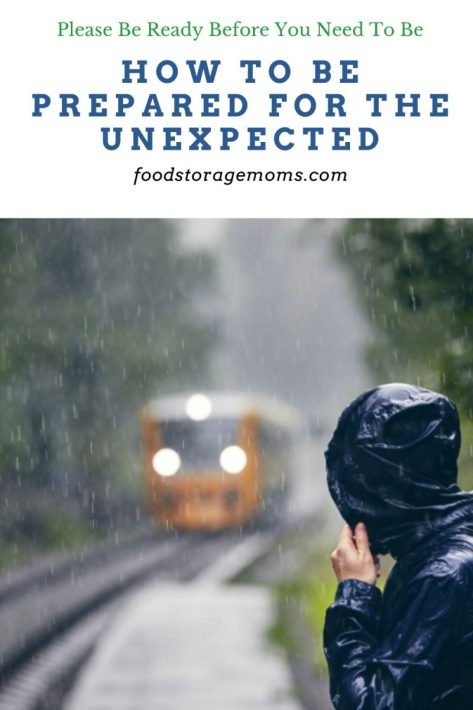
How To Be Prepared For The Unexpected
- Is Your Neighborhood Prepared?
- 125 Preparedness Items You Need To Stock
- Prepared: What Does That Mean?
Did you know I wrote a book on being prepared?
As you may know, Page Street Publishing Company asked me to write a book in 2015 outlining the skills people need to be prepared and survive. I would love every family in the world to have one of my books. My book provides the tools to be prepared to survive most any disaster or unforeseen emergency. “Prepare Your Family For Survival”
Create and Maintain an Emergency Kit
Your emergency kit should include essentials like water (one gallon per person per day for at least three days), non-perishable food, a manual can opener, and basic utensils. Stock a first aid kit with bandages, antiseptics, medications, and any necessary prescription drugs. Have tools and gadgets such as a flashlight, extra batteries, a multi-tool, a whistle, and a hand-crank or battery-powered radio. What Are 20 Basic Items in an Emergency Kit?
Include personal items like hygiene products, extra clothing, sturdy shoes, and blankets. Keep copies of identification, insurance policies, medical records, and a list of emergency contacts in a waterproof container. Carry small bills and coins, as ATMs and card readers might be unavailable.
Develop a Family Emergency Plan
Start by identifying potential emergencies in your area, such as natural disasters, power outages, or industrial accidents. Establish a communication strategy by designating an out-of-town contact person and ensure everyone knows how to reach them. Set up a family communication plan using texts or social media.
Choose safe locations where family members can meet if separated, both in your neighborhood and outside of it. Familiarize yourself with multiple routes from home and neighborhood if primary roads are blocked. Very Basic Steps for Starting Emergency Prepping
Stay Informed
Sign up for local emergency alerts and notifications via apps or text messages. Keep a battery-powered or hand-crank radio to stay updated on the latest news and instructions from authorities. Follow local government, emergency services, and weather agencies on social media for real-time updates.
Prepare Your Home
Install smoke detectors, carbon monoxide detectors, and fire extinguishers. Test them regularly. Anchor heavy furniture and appliances to walls to prevent them from tipping over during earthquakes or other disturbances. Know how to shut off your home’s gas, water, and electricity and keep the necessary tools nearby. Consider a generator or alternative power source for prolonged outages. How To Get Your Family Prepared For Survival
Financial Preparedness
Save at least three to six months’ living expenses in an easily accessible savings account or other safe financial product. Store critical financial documents and contact information for your bank, insurance company, and other key institutions in a secure, waterproof, and fireproof location. Review and update your insurance policies to ensure adequate home, health, and belongings coverage.
Plan for Pets
Include a pet emergency kit with food, water, medications, a leash, a pet carrier, and waste disposal supplies. Ensure pets have up-to-date ID tags and consider microchipping. Research pet-friendly shelters or hotels in case you need to evacuate. What to do With Your Pets in an Emergency
Conduct Regular Drills and Updates
Practice emergency drills with your family, including evacuation and communication exercises. Update your emergency plan and kit at least twice yearly, checking for expired items and making necessary changes. Take first aid and CPR courses, and encourage family members to learn basic emergency response skills.
Assist Others
Regularly check on neighbors and family members who may need help. Help them develop their emergency plans and ensure they have the necessary supplies. Arrange for their transportation needs in case of an evacuation.
Stay Calm and Adaptable
Keep a positive attitude and remain calm during an emergency, as panic can lead to poor decision-making. Be prepared to adjust your plans as situations evolve since flexibility can be crucial in responding effectively to unexpected challenges.
How to Be Prepared for the Unexpected
Sometimes, we must be reminded to do all the following, one step at a time.
- Store water so you have a minimum of 4 gallons per person per day for all the members of your family (I recommend a minimum of 30 days)
- Store food to supply your family for a minimum of seven days (I recommend a minimum of 30 days)
- Gather your important documents today, not tomorrow. I have a FREE download for you: Food Storage Moms Binder Contents. One page explains all the items you need, like a zippered binder, zippered pouches, picture holders for your family photos, etc.
- If you have a 72-hour go bag, that’s awesome. If you cannot afford a bag, put all the items in a box that you will need to survive for 72 hours in case of a disaster.
What will happen if you lose power and can’t heat or cool your home or cook your meals? How will you communicate if your cell or landline phones don’t work? How will you stay warm, wash dishes or clothes, or run home appliances without electricity?
What if you have to evacuate your home? There are so many things to consider. The book will bring to your attention many things you’ve probably never considered. Once you read the book, you’ll want to share the concepts with all your extended family, friends, and co-workers. Then you can start to put together your own family emergency plan.
What should I include in an emergency kit?
An emergency kit should contain essential items to sustain you and your family for at least 72 hours. Key items include:
- Water – At least one gallon per person per day.
- Food – Non-perishable items such as canned goods, granola bars, and dried fruits.
- First Aid Kit – Bandages, antiseptics, pain relievers, prescription medications, and other necessary medical supplies.
- Tools and Supplies – Flashlight, batteries, multi-tool, manual can opener, matches or lighter, and whistle.
- Personal Items – Hygiene products, clothing, blankets, and personal documents (IDs, insurance policies).
- Communication Devices – Battery-powered or hand-crank radio and a phone charger or power bank.
- Cash: Small bills and coins.
How often should I update my emergency kit and plan?
Review and update your emergency kit and plan at least twice a year. Check for expired food, water, medications, and batteries, and replace them as necessary. Update your plan to reflect changes in personal circumstances, such as a new address or family member.
What role does financial preparedness play in emergencies?
Financial preparedness involves:
- Emergency Fund: Save at least three to six months’ living expenses.
- Important Documents: Keep copies of essential documents (IDs, insurance policies, financial records, passports, birth certificates, etc.) in a waterproof and fireproof container.
- Insurance: Ensure adequate health, home, auto, and life insurance coverage.
Final Word
Regular updates and community involvement can further enhance your readiness, ensuring that you and your loved ones can confidently handle emergencies. I hope these tips help you as much as they have helped me. May God Bless this World, Linda
Copyright Images: Hurricane Floods in Florida AdobeStock_660066679 By Bilanol, Man In Heavy Rain AdobeStock_281470299 By Chalabala

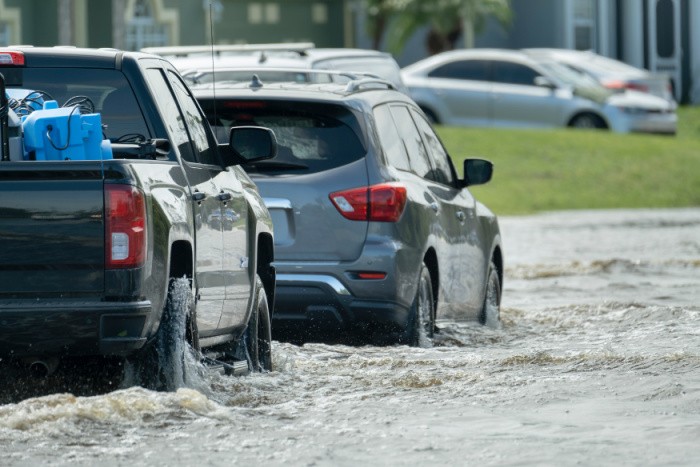

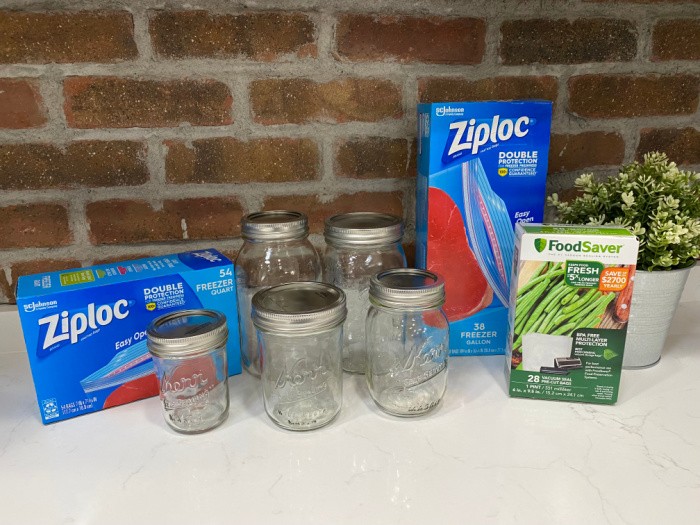
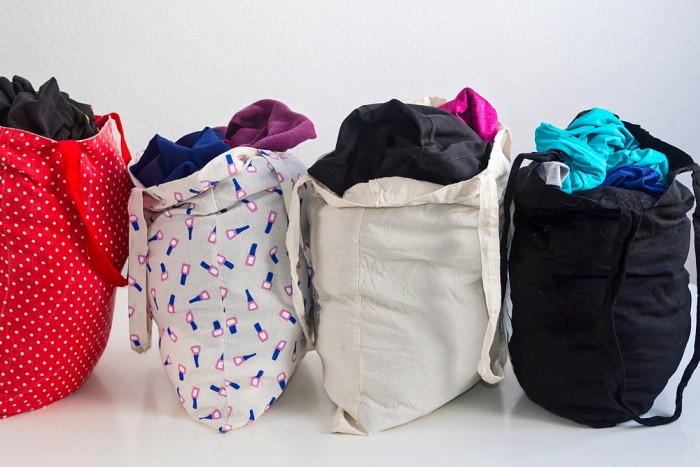
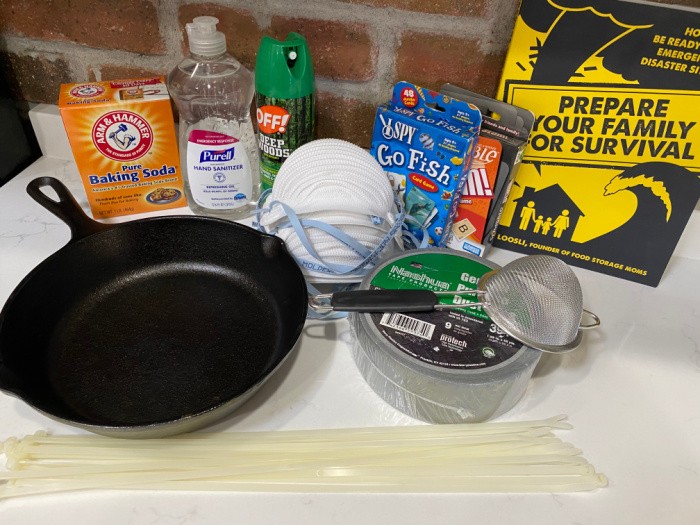


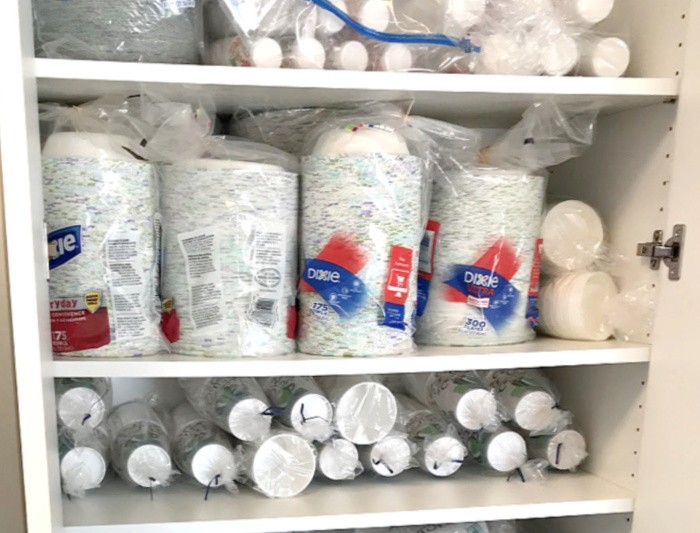


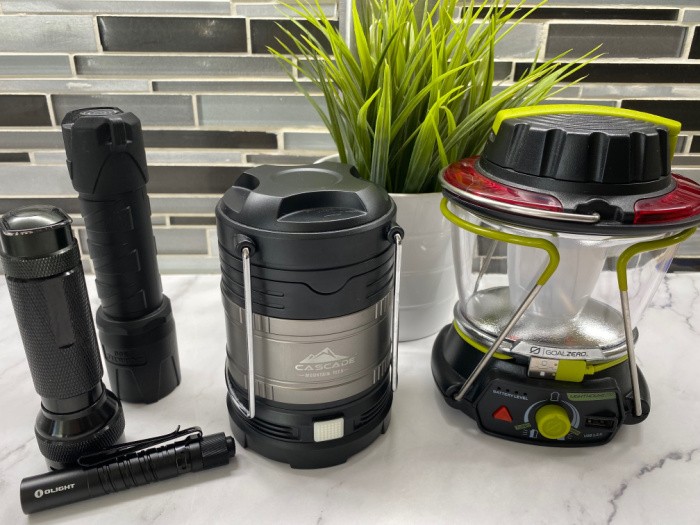
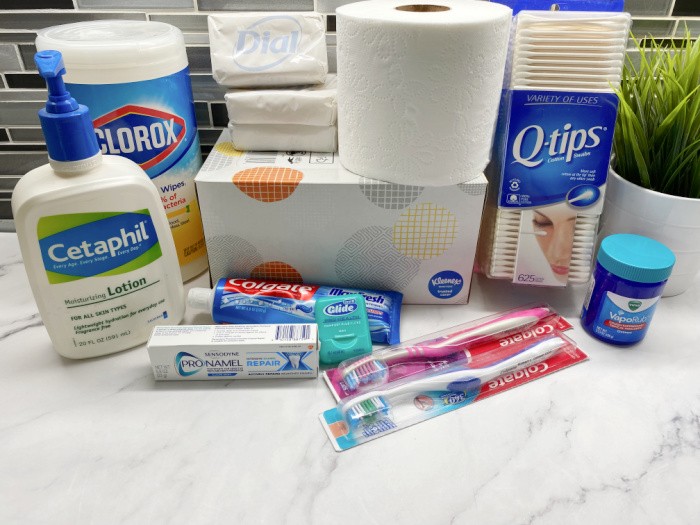
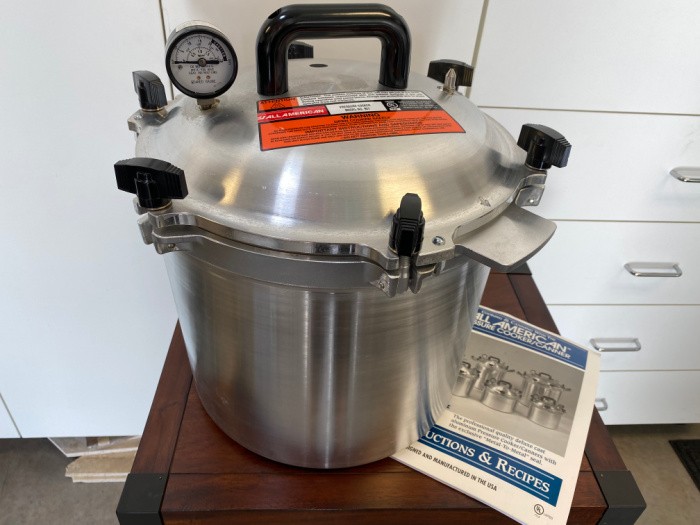




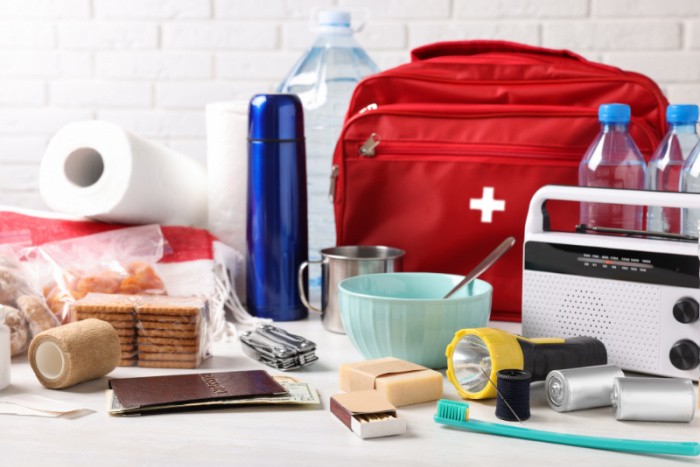
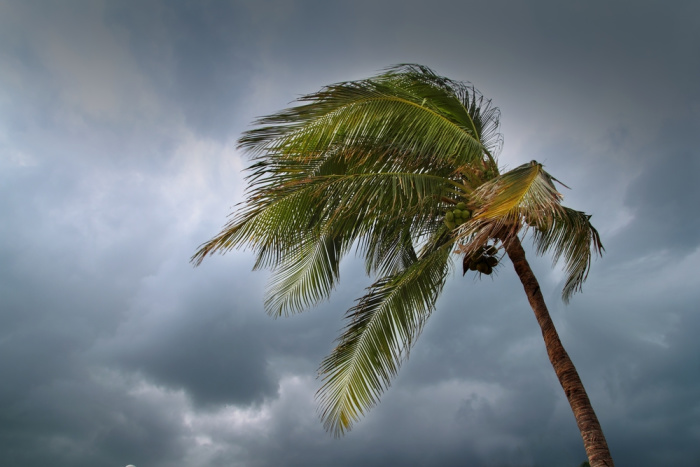
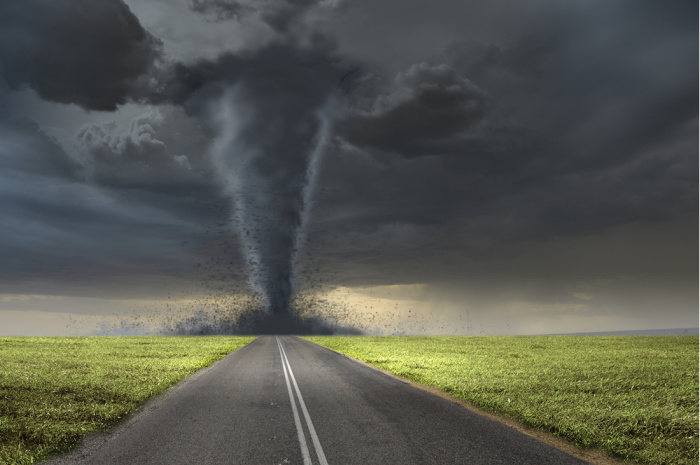

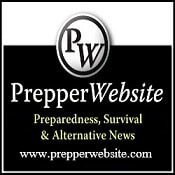
Nice reminder, with simple plan!
Hope you are having a great day… Hugs, Mare
Hi Mare, I hope you had a three-day weekend! Hugs! Linda
I work as a night auditor at a hotel just outside of Bryce. My nights are Friday through Monday nights, so I worked through the holiday. It was a crazy weekend, too. I know you were having some of the family come for the holiday. It must have been fun for all!
Can I ask you for a little favor? I’ve had a website for years, but have never done anything with it. I decided to start a blog of my own. I’d love it if you would drop by and let me know what you think. There’s only four posts, so far, and I’m not advertising it, in any way, yet. So you would be my first visitor. I’ve even got a link to you in the 3rd post. *G* Hugs, Mare
Hi Mare, sorry it took me so long to get back to you! I just changed computers because my other one is dying. You are a fabulous writer! If you need any help email me: linda.loosli@yahoo.com
We can also talk on the phone when I get back from California in a few weeks. Hugs! Linda
Thanks so much for the compliment! That really means a lot coming from you!
I hope you’re having a food time in Cali. Hugs, Mare
Hi, Linda! I’m putting together my Food Storage Moms Binder, but I’m not sure where to put our life insurance info. Thanks so much for this: my sons will be very grateful someday when my husband and I are gone…
Hi Roxanne, thanks for your patience! I had to move to a new computer and it took longer than I thought. Here’s the deal, look at the binder contents on TAB #5 for your life insurance policies. Of course, your family will need the original policies to collect any monies but at least you can put the Life insurance company, policy number, insurance company agent, and phone numbers. Trust me your sons will be so glad you have this put together! May God bless you, hugs! Linda
“Unexpected” doesn’t mean UNKNOWN.
Y’all know what the threats are in your area.
Hill Country Texas floods when too many cattle pee at the same time. Coastlines see hurricanes. My world is blown to pieces by tornadoes every spring. Some of yall see feet not inches of snow when it does.
Start with the known and move forward.
Great points, Matt,
As a very old lifelong Texan, I have seen some of all that you mentioned, hurricanes, tornadoes, flooding, snow although not feet, as well as wildfires. The best thing one can do is keep informed by keeping eyes and ears open and being ready to respond quickly.
As an aside, right now here in the Texas Hill Country we are so dry that we almost get a dust-storm when one of those cows farts. Of course, being so dry gives the threats of a wildfire in our vast ash juniper.
Hi Harry, Texas has or did have all that rain in Houston, it was wild what they showed on the news. You have a drought and up north they had some flooding. The fires are bad, hopefully you won’t lose any of those junipers, come on rain, we need you! I have the giggles over the almost dust storm from the cow farts! LOL, Linda
Hi Matt, you are so right, we have snow, fires and flooding in Utah. I think we had one tornado in my lifetime here. Never before seen in Utah! We all need to be aware of the KNOWN disasters in our area. Great point! Linda
We are well prepared for blizzards, tornadoes and a train derailment (yet to happen in my city but happens several times a year within 50 miles of us) but this month has set all sorts of weather records. After several years of drought, we have had the wettest May on record and we still have a week to go with storms predicted most days. We have had multi-vortex tornadoes; tornadoes in the middle of the night (first time we’ve been woken around 2am by tornado sirens); flooding away from flood plains; and trees falling all over the place. So far we have been safe from everything.
My daughter and her family were moving back to the house that didn’t sell in a year in Iowa and they came back today to borrow our chainsaw. Seems they have multiple very large limbs down in their yard. Luckily no damage. They are about 50 miles from Greenfield Iowa that was mostly destroyed and had 4 or 5 people killed by tornadoes earlies this week.
After this month, I think I need to prepare for more than the “normal”
Hi Topaz, I’m with you what is normal anymore, weather seems to be more extreme each year. I’m sad to hear 4 or 5 people were killed in the Iowa tornado. Luckily your daughter and her family had no damage to their home or family members. The cleanup is hard but hopefully they can use the limbs as firewood once they are dry and seasoned. I think we all need to prepare for more. What’s around the corner that we don’t know about yet. Stay safe, my friend, Linda